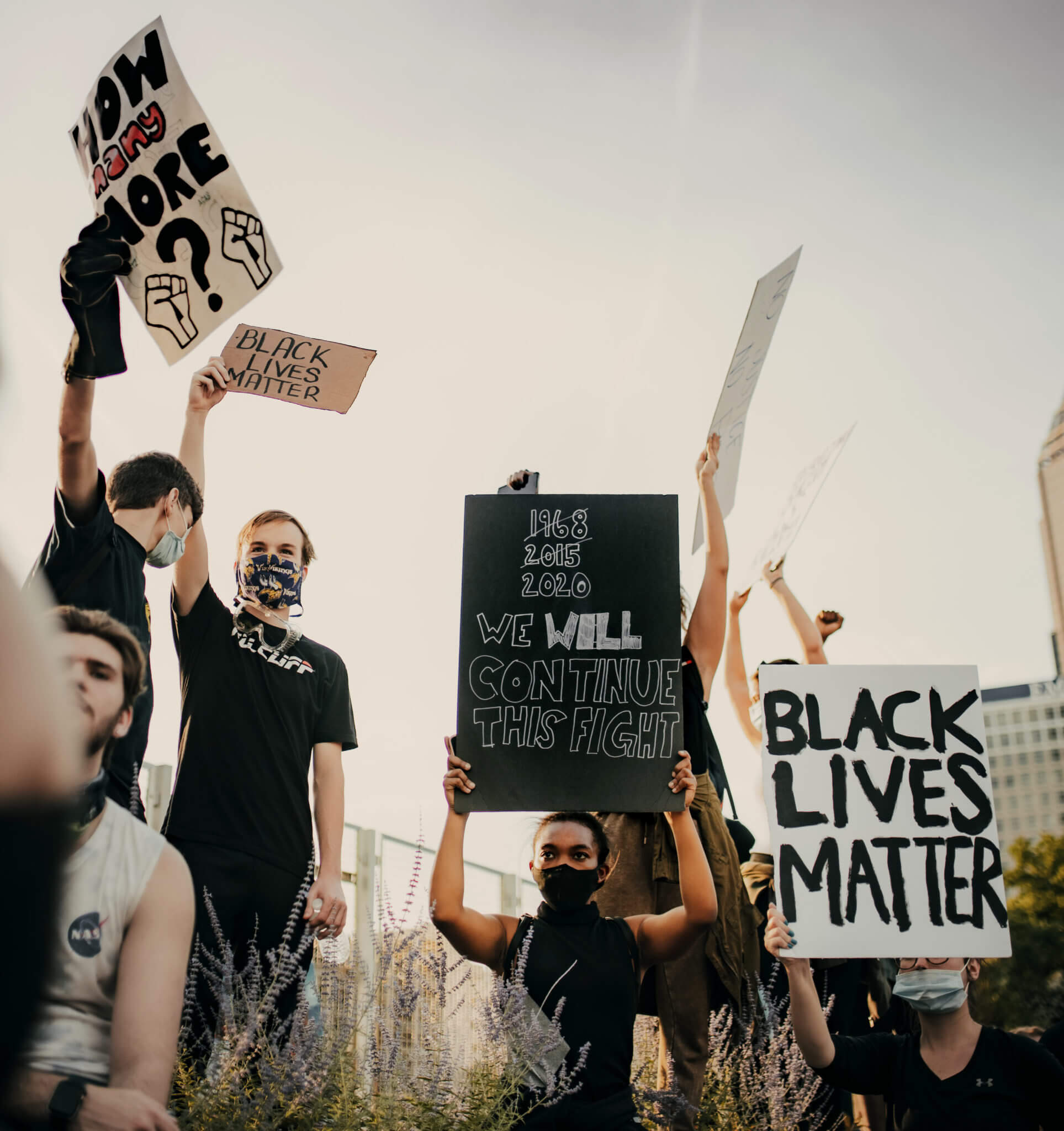Listen to The 10 Group’s MD, Eddie Hammerman, on BBC Radio 5 Live. The rules of PR and marketing have fundamentally changed over the past two weeks.Traditionally, brands will respond with a position on an issue such as Black Lives Matter when they have a definitive, meaningful policy. This takes time and thought to create.
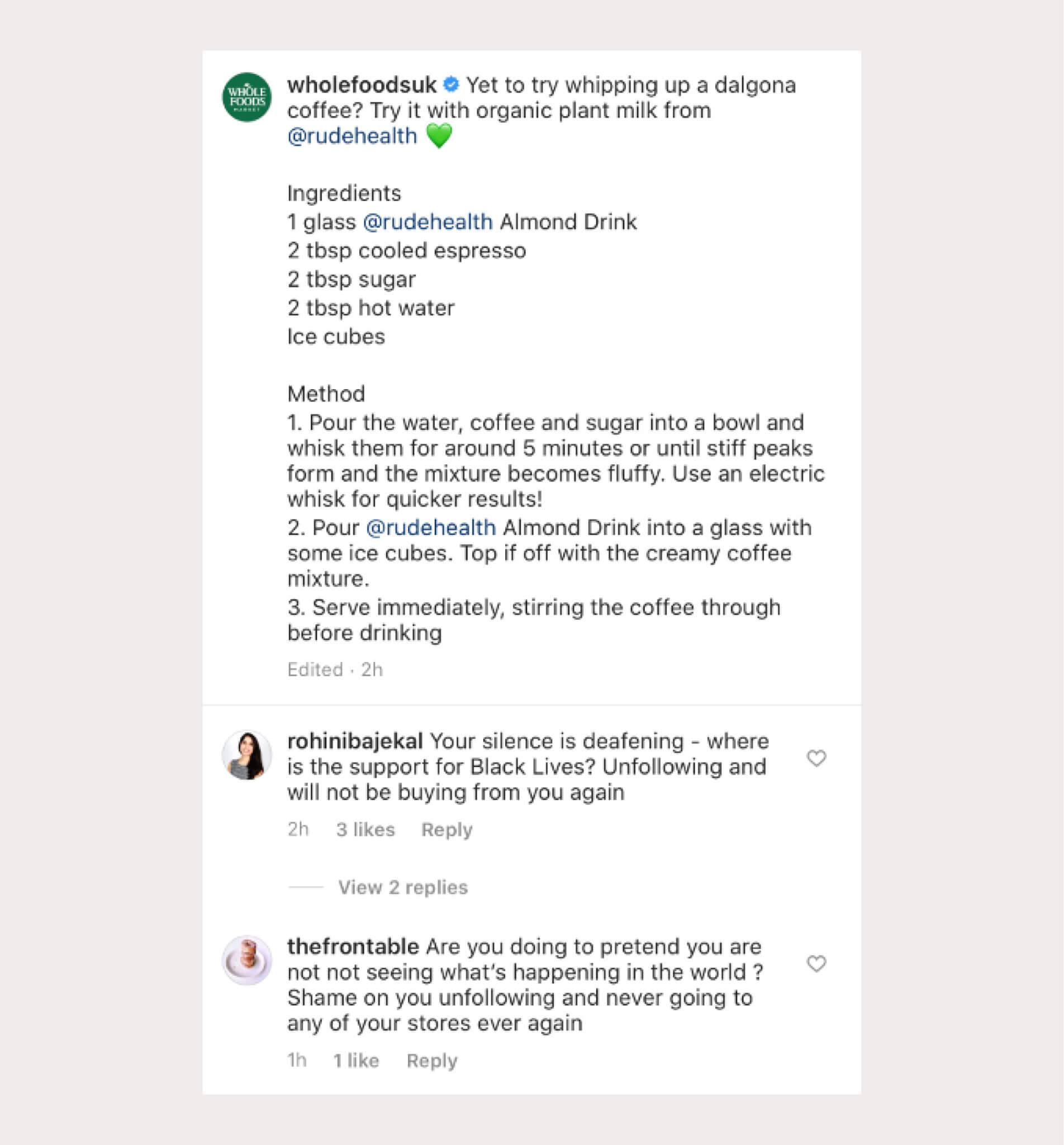
But in this digital era, time moves fast. Conversations with your customers is constant. If you don’t respond quickly, you risk looking like you don’t endorse the movement. If you don’t respond at all, you’re in real danger of damaging your brand.
Why? Because customers want brands to demonstrate humility and empathy, understanding what’s going on around them and how they, as powerful entities themselves, can respond to make the world a better place.
But it’s very easy to say the wrong thing as the issue is so nuanced.
On balance it now seems to be riskier to NOT respond quickly than to try something, and do get it wrong.
This is a very difficult position for brands.
A number of companies have started to respond in a different and personal way.
After not responding to the Black Live Matter campaign, Yorkshire Tea was tweeted by a follower:
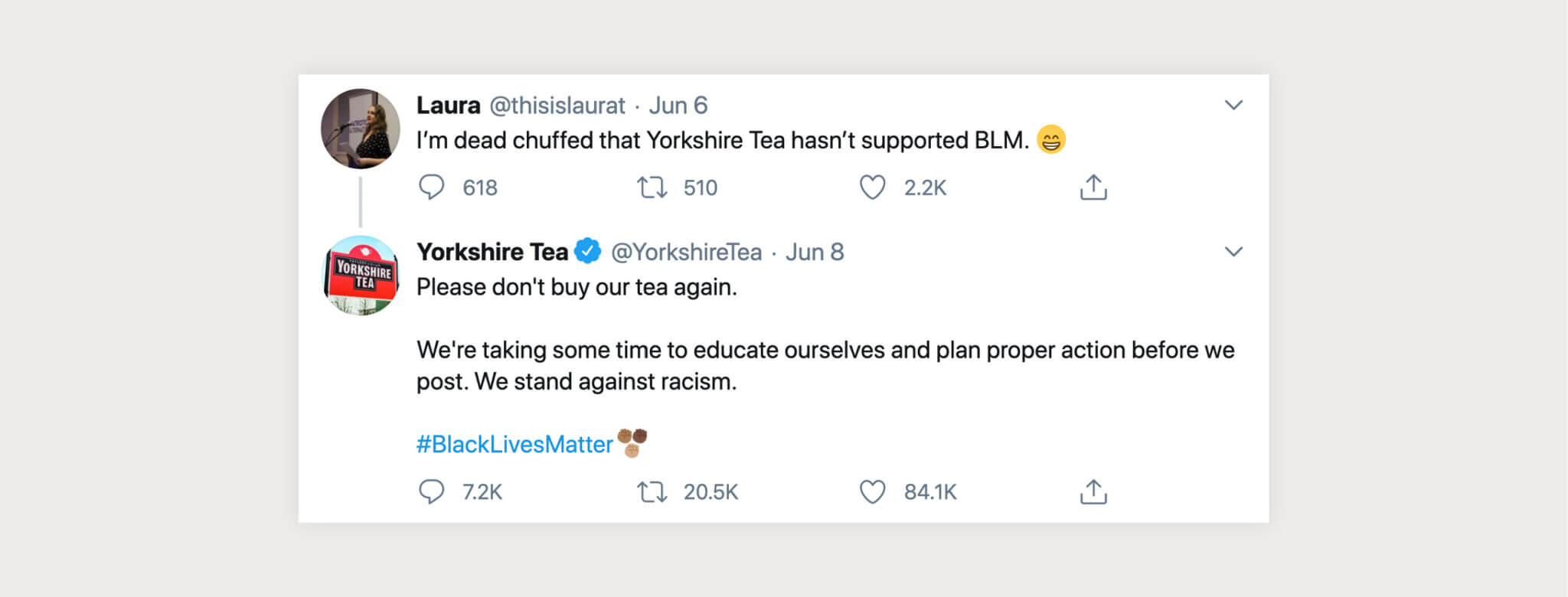
There were also calls for Twinings and Tetley to show their support too, as the tea industry’s historical associations with colonialism and slavery were called out.
Elsewhere, Amazon placed a Black Lives Matter banner at the top of its home page linking to a blog with details of action it is taking to support black communities.
One Amazon customer vowed never to shop with Amazon again. Jeff Bezos responded accordingly.
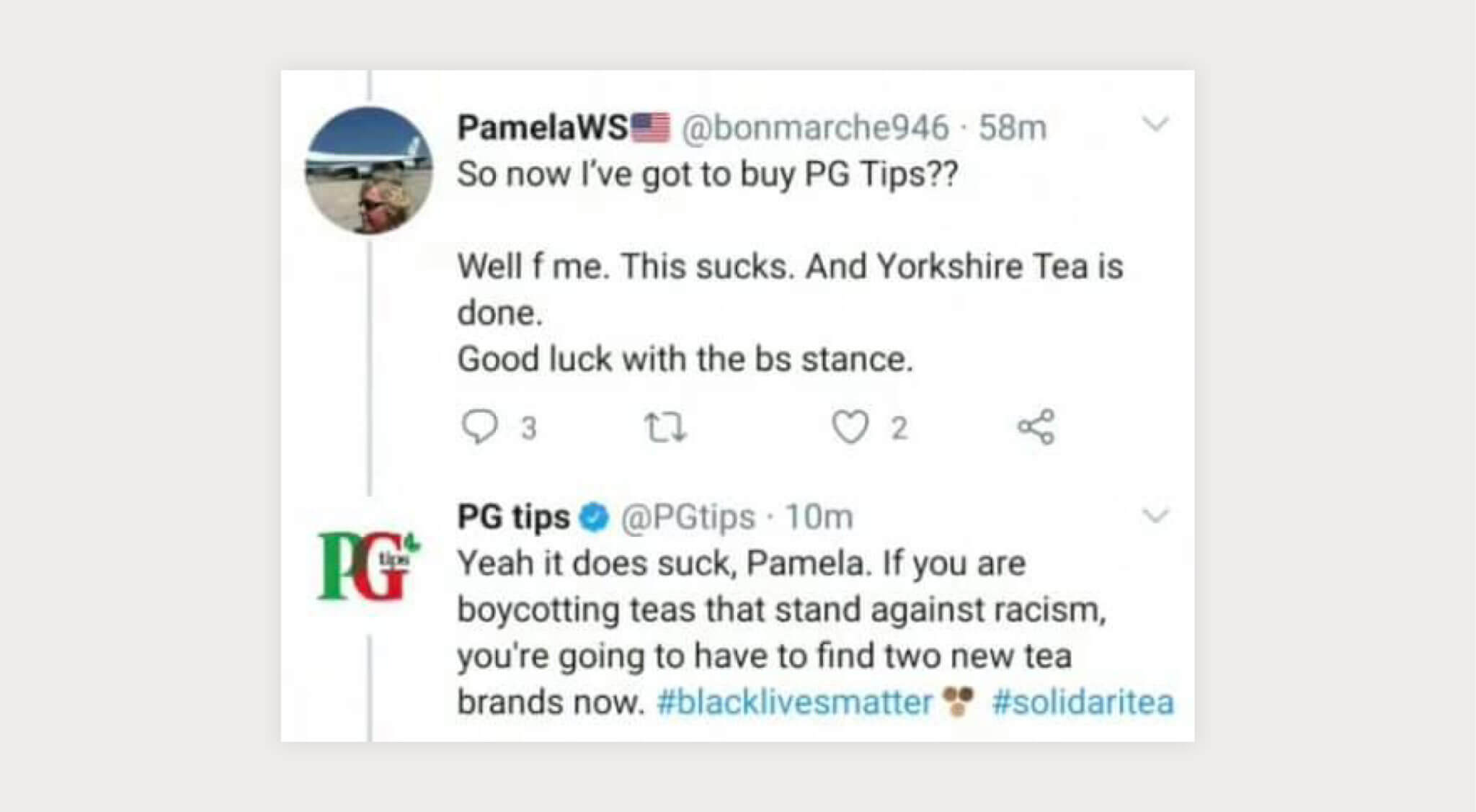
Customers want to support forward-thinking companies with a social conscience.
We expect companies to put purpose over profit. To risk losing customers whilst upholding meaningful values.
In reality, taking a stand often means you gain more followers.
Previously the Boss of holiday company Hoseseasons said he’d ban homophobic and racist customers from booking holidays. It was a gesture but it was powerful.
The danger with all these issues is brands seemingly ticking boxes in a bid to respond quickly.
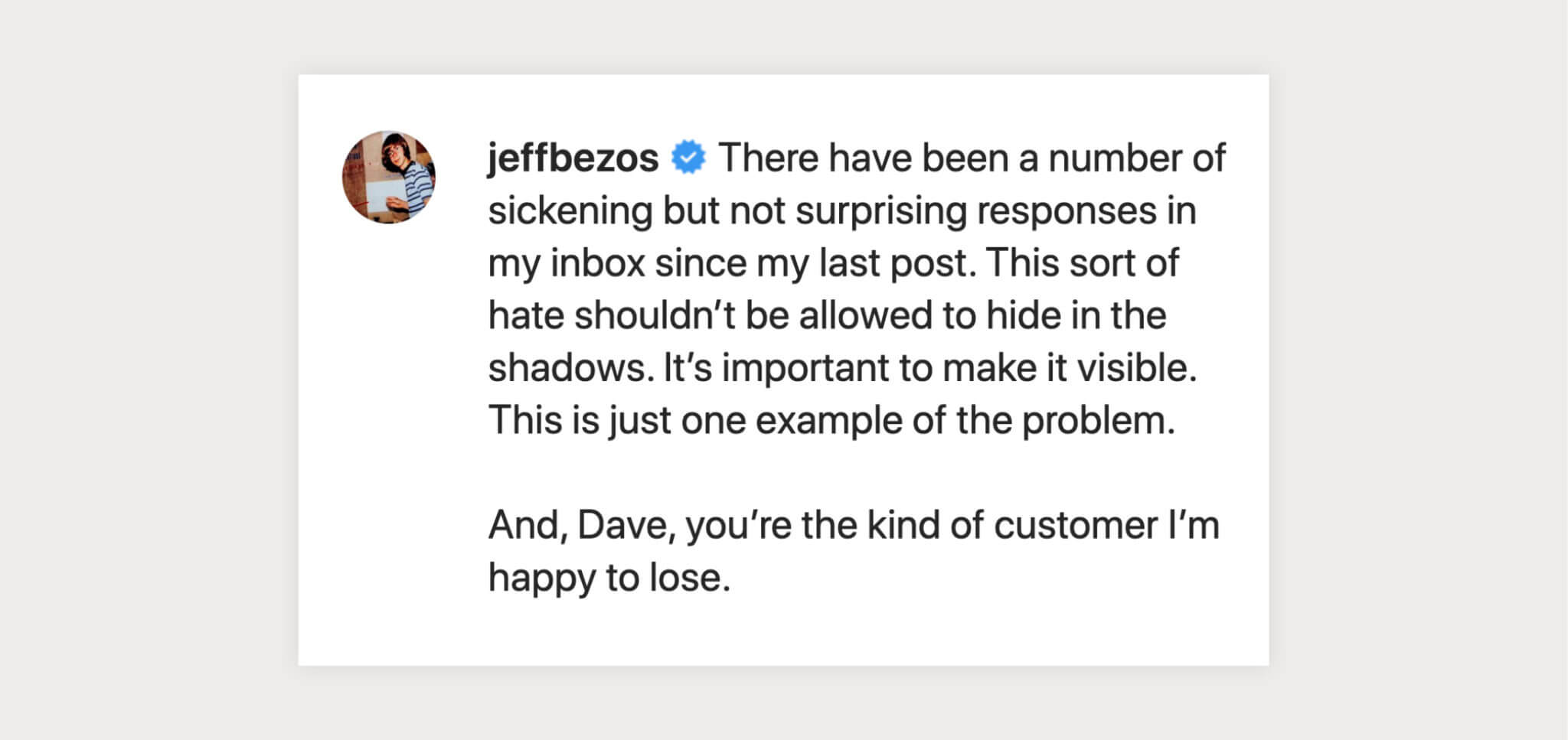
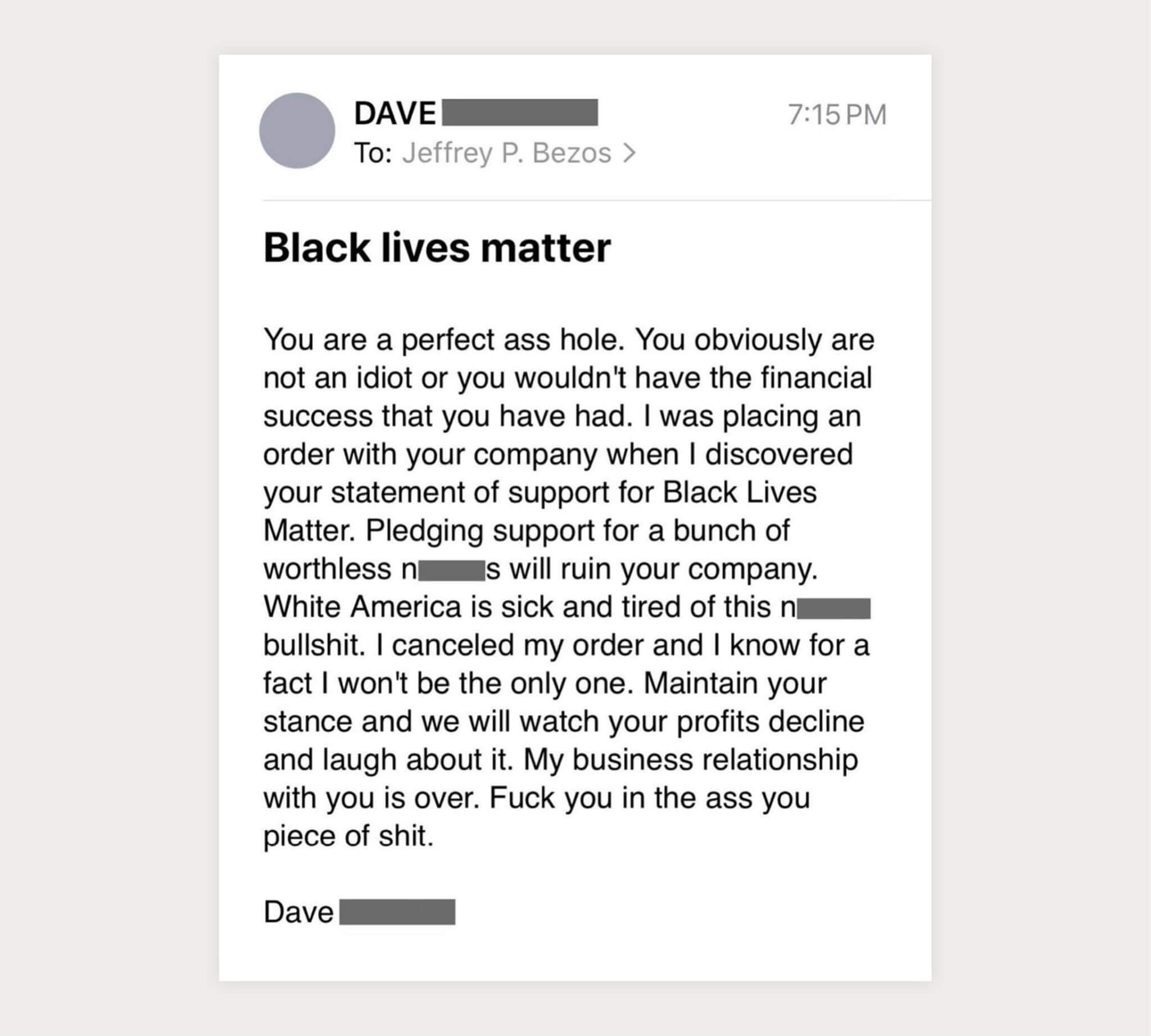
In six months’ time, customers will ask the question – how have you changed? Are you still confronting this issue?
Authenticity has to champion superficiality.
Those who conduct token campaigns will ultimately get found out.
Those who embrace real change and communicate it well will thrive.
And hopefully, the world will be a better place for it.
